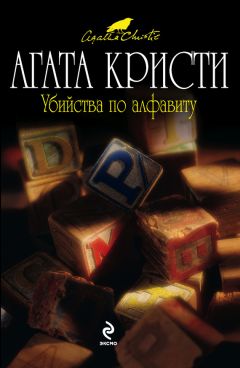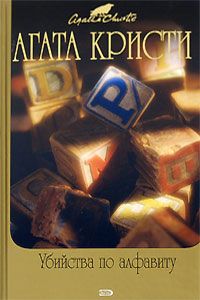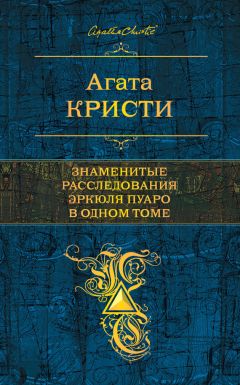Agatha Christie - Английский язык с Агатой Кристи. Убийства по алфавиту
"Quite right (совершенно верно). He always did (он всегда /так/ делал)."
"Every night (каждый вечер)?"
"Well (ну), not if it was pouring with rain (только, если не шел проливной дождь; to pour— лить/ся/), naturally (естественно)."
touch [tʌtʃ], curtness [ˈkǝ:tnɪs], pouring [ˈpɔ:rɪŋ]
"What is that?"
"A fact that repeats itself. It is of no matter."
"Anyway, it wasn't suicide," said Crome with a touch of curtness. "Now I believe, Mr. Clarke, that it was your brother's habit to go for a stroll every evening?"
"Quite right. He always did."
"Every night?"
"Well, not if it was pouring with rain, naturally."
"And everyone in the house knew of this habit (и все в доме знали об этой привычке)?"
"Of course (конечно)."
"And outside (и вне дома)?"
"I don't quite know what you mean by outside (я не вполне понимаю, что вы имеете в виду под «вне дома»). The gardener may have been aware of it or not (садовник, возможно, знал об этом, а /может/ нет), I don't know (я не знаю)."
"And in the village (а в деревне)?"
"Strictly speaking (строго говоря), we haven't got a village (у нас нет деревни). There's a post office and cottages at Churston Fetters (там есть почтовое отделение и коттеджи в Черстон Феттерс) — but there's no village or shops (но там нет деревни или магазинов)."
gardener [ˈɡɑ:dǝnǝ], village [ˈvɪlɪʤ], post office [ˈpǝʋstˌɔfɪs]
"And everyone in the house knew of this habit?"
"Of course."
"And outside?"
"I don't quite know what you mean by outside. The gardener may have been aware of it or not, I don't know."
"And in the village?"
"Strictly speaking, we haven't got a village. There's a post office and cottages at Churston Fetters — but there's no village or shops."
"I suppose (я полагаю) a stranger hanging round the place would be fairly easily noticed (что незнакомец, слоняющийся вокруг этого места, был бы легко замечен)?"
"On the contrary (напротив). In August all this part of the world is a seething mass of strangers (в августе вся эта местность: «часть мира» является бурлящей массой незнакомцев; to seethe — мочить, пропитывать; бурлить, кипеть).
They come over every day from Brixham (они прибывают каждый день из Бриксхема) and Torquay (и /из/ Торки) and Paignton (и Пейнтона) in cars (в машинах) and buses (и /на/ автобусах) and on foot (и пешком). Broadsands (Бродсэндс: «широкие пески»), which is down there (которые там внизу) (he pointed) (он указал /на них/), is a very popular beach (очень популярный пляж) and so is Elbury Cove (и так же Элбери Коув: «бухта Элбери») — it's a well-known beauty spot (это очень известная живописная местность; spot — пятнышко; крапинка; пятно; место, местность) and people come there and picnic (и люди приезжают сюда и /устраивают/ пикник). I wish they didn't (мне бы хотелось, чтобы они /этого/ не делали)! You've no idea (вы не имеете представления) how beautiful and peaceful this part of the world is in June (как прекрасно и мирно здесь в июне: «эта часть света в июне») and the beginning of July (и начале июля)."
contrary [ˈkɔntrǝrɪ], seething [ˈsi:ðɪŋ], beach [bi:tʃ]
"I suppose a stranger hanging round the place would be fairly easily noticed?"
"On the contrary. In August all this part of the world is a seething mass of strangers.
They come over every day from Brixham and Torquay and Paignton in cars and buses and on foot. Broadsands, which is down there (he pointed), is a very popular beach and so is Elbury Cove — it's a well-known beauty spot and people come there and picnic. I wish they didn't! You've no idea how beautiful and peaceful this part of the world is in June and the beginning of July."
"So you don't think (так вы не думаете) a stranger would be noticed (что незнакомца заметили бы)?"
"Not unless he looked (только если он выглядел) — well, off his head (ну, безголовым)."
"This man doesn't look off his head," said Crome with certainty (этот человек не выглядел безголовым, — сказал Кроум с уверенностью). "You see (вы понимаете) what I'm getting at, Mr. Clarke (на что я намекаю, мистер Кларк). This man must have been spying out the land beforehand (этот человек, должно быть, исследовал местность заранее; to spy — шпионить) and discovered your brother's habit of taking an evening stroll (и обнаружил привычку вашего брата совершать вечерние прогулки). I suppose (я полагаю), by the way (кстати), that no strange man came up to the house (что никакой незнакомый человек /не/ приходил в вашему дому) and asked to see Sir Carmichael yesterday (и /не/ просил повидаться с сэром Кармайклом вчера)?"
spy [spaɪ], beforehand [bɪˈfɔ:hænd], strange [streɪnʤ]
"So you don't think a stranger would be noticed?"
"Not unless he looked — well, off his head."
"This man doesn't look off his head," said Crome with certainty. "You see what I'm getting at, Mr. Clarke. This man must have been spying out the land beforehand and discovered your brother's habit of taking an evening stroll. I suppose, by the way, that no strange man came up to the house and asked to see Sir Carmichael yesterday?"
"Not that I know of (я ни о чем таком /не/ знаю: «не так, чтобы я знал») — but we'll ask Deveril (но мы спросим Деверила)."
He rang the bell (он позвонил в колокольчик) and put the question to the butler (и задал вопрос дворецкому).
"No, sir, no one came to see Sir Carmichael (нет, сэр, никто не приходил повидать сэра Кармайкла). And I didn't notice anyone hanging about the house either (и я также не заметил, /чтобы/ кто-то слонялся возле дома). No more did the maids (не больше /видели/ служанки = и служанки ничего не видели), because I've asked them (потому что я /уже/ спрашивал их)."
The butler waited a moment (дворецкий подождал с минуту), then inquired (затем осведомился): "Is that all, sir (это все, сэр)?"
"Yes, Deveril (да, Деверил), you can go (вы можете идти)."
The butler withdrew (дворецкий удалился; to withdraw — отдергивать; удаляться), drawing back in the doorway (отступая назад в дверном проеме) to let a young woman pass (чтобы позволить пройти молодой женщине).
maid [meɪd], doorway [ˈdɔ:weɪ], withdrew [wɪðˈdru:]
"Not that I know of — but we'll ask Deveril."
He rang the bell and put the question to the butler.
"No, sir, no one came to see Sir Carmichael. And I didn't notice anyone hanging about the house either. No more did the maids, because I've asked them."
The butler waited a moment, then inquired: "Is that all, sir?"
"Yes, Deveril, you can go."
The butler withdrew, drawing back in the doorway to let a young woman pass.
Franklin Clarke rose (Франклин Кларк поднялся; to rise) as she came (когда она вошла). "This is Miss Grey, gentlemen (это мисс Грей, джентльмены). My brother's secretary (секретарь моего брата)."
My attention was caught at once by the girl's extraordinary Scandinavian fairness (мое внимание сразу привлекла необычайная скандинавская красота девушки; fair — красивый, прекрасный /обычно о женщинах/; светлый, белокурый). She had the almost colourless ash hair (у нее были почти бесцветные пепельные волосы) — light grey eyes (светло-серые глаза) — and transparent glowing pallor (и прозрачная мерцающая бледность /кожи/) that one finds amongst Norwegians and Swedes (которую можно найти среди норвежцев и шведов). She looked about twenty-seven (она выглядела примерно на двадцать семь) and seemed to be as efficient as she was decorative (и казалась была такой же деловой, как и красивой: «как она была красивой»; to decorate — украшать, отделывать; efficient — действенный, результативный, эффективный; умелый, подготовленный, квалифицированный).




